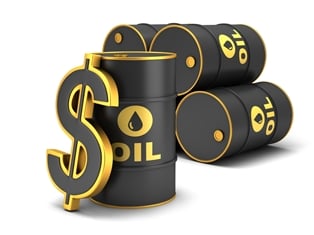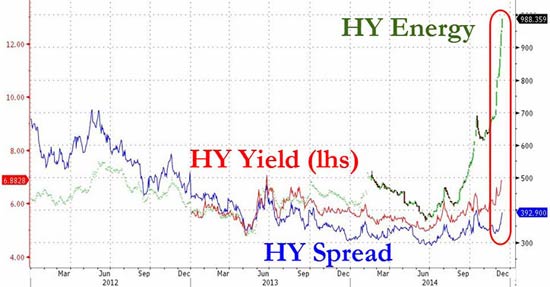Janet Yellen sure has a way with the market...
As the Fed Chair delivered her unexpectedly dovish message, the Dow bounced almost 400 points off yesterday's lows.
Even so, that move paled in comparison to the even bigger move she triggered in oil prices.
West Texas Intermediate (WTI) soared 3.7%, only to be topped by Brent, which jumped by 4.4%. That easily topped the 1.29% move in the Dow.
Yet the dramatic market turnaround seemed rather counterintuitive. After all, as the pundits pointed out and are sure to hammer on, nothing the Fed Chair said indicated a retreat from any pending rate hike.
In fact, the intentional deletion of the word "patience," used to describe the Fed's approach to rate hikes, makes the move guaranteed.
So why all of the market exuberance?
Here's my take on the "Yellen Effect" and what it means for oil...
A Market Built on Cheap Money
One reason for the big market move may simply be the recognition that the rate hike is not happening tomorrow. The consensus is building that the impending rate hike now won't happen as early as the previous forecast, early next quarter.
 The concerns expressed by Yellen about the overall economic improvement and the unemployment picture telegraphed to the markets that there were enough ongoing worries to mitigate a rapid change in rate policy.
The concerns expressed by Yellen about the overall economic improvement and the unemployment picture telegraphed to the markets that there were enough ongoing worries to mitigate a rapid change in rate policy.
However, when it comes to reactions in the oil markets such as those on March 19, which clearly outdistanced the markets as a whole, there is a more decisive factor in play...
A dovish statement means the availability of cheap money will last a little bit longer in the oil patch.
Of course, this grabbed the attention of all of the other market players as well. Even with all the discussion about how the Fed's quantitative easing has set us up for a mighty fall (not all of which is incorrect), the attitude of the market toward cheap money is rather different. They thrive on it.
The truth is, a big portion of the stock market rally since the end of the credit slump has come on the back of cheap money.
And while markets may appreciate the need for restraint in the face of "irrational exuberance" and may provide a nod in the direction of the "Chicago School" style of economic theory, they just don't invest that way.
In the same way that the Fed's zero-interest rate policies have been a boon to the stock market, the flood of cheap money has been a lifeline to oil companies. The big jump in oil prices on March 19 is, in large measure, a reflection of that.
The reason for this is something I recently addressed as the critical part of the briefing I gave at Windsor Castle less than two weeks ago...
It involves the deteriorating condition of energy debt.
As I wrote in an earlier issue, a dangerous squeeze is developing for some producers in the U.S. oil patch. This brewing crisis will only get worse if WTI remains below $60 a barrel. There is a simple reason for this.
Companies that are dependent upon debt to fund drilling projects are reliant on that drilling revenue to meet operating expenses, provide profits for investors, and pay off the debt. Remember, the American shale oil and gas revolution was built on very high-yield and high-risk debt that is now getting weaker.
Now after a brief respite, the oil company debt picture has begun to deteriorate over the past two weeks, once again reaching the worrisome distress levels seen at the end of last year.
That's when the spread between general high-yield and energy high-yield debt dramatically intensified. High-risk bond yields in general ended the year averaging an annualized rate of 688 basis points (bps, or 6.88%), about 329 bps higher than investment quality bonds. However, high-risk energy bonds spiked to almost 1300 bps, almost 600 bps higher.
As you can see from the chart below, the two had been virtually identical at the beginning of July.
 This dramatic jump is a direct consequence of two factors: the market's increasing recognition of the risk associated with the paper and the declining quality of the new debt issued. Both of these reflect the reduced credit worthiness of the issuers.
This dramatic jump is a direct consequence of two factors: the market's increasing recognition of the risk associated with the paper and the declining quality of the new debt issued. Both of these reflect the reduced credit worthiness of the issuers.
The Energy Debt Mess Is Here to Stay
But there are other aspects to keep in mind. The slide in debt costs has certainly paralleled the rapid decline in oil prices. However, the impact on debt was far more pronounced than the hit taken by company stock valuations. What's more, pressure is building for another cycle of junk debt default, with the current trends reminiscent of the last three historical cycles.
We are currently in the early stages of this cycle. The real problem will hit 12 to 14 months from now.
That's because most of the companies carrying the debt have also hedged their future oil and gas prices that far out on the curve. At this point, over 80% of the forward extraction has already been hedged. The problem is that continuing low prices will make the cost of pushing that curve even farther out too expensive to bear.
So we are likely to see another downward move in the high-yield energy bond market next month as banks readjust their loan portfolios and as the risk spread intensifies.
At $90 a barrel or above, energy debt is very safe and the spreads are quite secure. The problem is we won't get back to those levels for some time. As a result, there will be another round of "creative destruction" in the oil and gas business.
That brings us back to the Yellen effect. You can delay (but hardly arrest) the decay in energy debt by keeping the status quo. Yet keeping the flow of cheap money intact does mean that junk debt will still be available, in spite of the fact that it's less attractive.
As long as money can be had at very low rates and loaned out at a higher spread, the high-risk energy market won't collapse. But it is not going to get healthy either.
If there is an oil equivalent to a "dead cat bounce," we may have seen a good example of it on March 19.
However, the underlying leverage mess hasn't gone anywhere.
It's the End of the World as We Know It: TV pundits have taken to the airwaves suggesting that negotiations between the West and Iran over Tehran's nuclear program would flood the market with Iranian oil. They're pushing their End-of-the-World pricing scenario and putting pressure on oil prices. Meanwhile, those playing the new "Iranian card" are shorting oil even further...
About the Author
Dr. Kent Moors is an internationally recognized expert in oil and natural gas policy, risk assessment, and emerging market economic development. He serves as an advisor to many U.S. governors and foreign governments. Kent details his latest global travels in his free Oil & Energy Investor e-letter. He makes specific investment recommendations in his newsletter, the Energy Advantage. For more active investors, he issues shorter-term trades in his Energy Inner Circle.



